- Home
- Gustave Aimard
La fièvre d'or. English
La fièvre d'or. English Read online
Produced by Camille Bernard & Marc D'Hooghe athttps://www.freeliterature.org (Scanned by Google)
THE GOLD-SEEKERS:
A TALE OF CALIFORNIA
BY
GUSTAVE AIMARD,
AUTHOR OF "PRAIRIE FLOWER," THE "TIGER-SLAYER," ETC.
LONDON
WARD AND LOCK,
158, FLEET STREET.
1861
PREFACE.
The "Gold-Seekers" must be regarded as forming the connecting linkbetween the "Tiger-Slayer" and the "Indian Chief," the concluding volumeof this series. It must not be forgotten that the author is dealing withreal characters, and that the hero lived and died in the way hereafterto be described; and the three volumes may be considered a life-historyof a very remarkable man. Although they may be perused separately withequal interest, I feel confident that those readers who have gone so farwith me will desire to know the conclusion of this strange eventfulhistory.
LASCELLES WRAXALL.
CONTENTS.
PROLOGUE:--
I. THE MEETING II. EL MESON DE SAN JUAN III. THE GENTLEMEN OF THE ROAD IV. THE BARRANCA DEL MAL PASO
I. THE NIGHT HALT II. FIFTEEN YEARS' SEPARATION III. A SAD MISTAKE IV. EXPLANATIONS V. THE CONSEQUENCES OF A LOVE SONG VI. DELILAH VII. A RETROSPECT VIII. A MEXICAN'S PROGRESS IX. THE NEXT DAY X. IN WHICH THE SALE OF THE HERD IS DISCUSSED XI. A COMMERCIAL TRANSACTION XII. CONVERSATION XIII. PREPARATIONS XIV. VALENTINE'S RETURN XV. THE DEPARTURE XVI. TWO MEN MADE TO UNDERSTAND EACH OTHER XVII. GUAYMAS XVIII. THE FIRST FORTNIGHT XIX. PITIC XX. DIAMOND CUT DIAMOND XXI. THE TAPADA XXII. THE REVOLT
THE GOLD-SEEKERS
PROLOGUE
I.--THE MEETING.
On the 5th of July, 184-, at about six in the evening, a party ofwell-mounted horsemen started at a gallop from Guadalajara, the capitalof the state of Jalisco, and proceeded along the road that traverses thevillage of Zapopan, celebrated for its miraculous virgin. After crossingthe escarped summits of the Cordilleras, this road reaches the charminglittle town of Tepic, the usual refuge of those Europeans and richMexicans whom business carries to San Blas, but to whom the insalubrityof the air breathed in that port, the maritime arsenal of the Mexicanunion, would be mortal.
We have said that six o'clock was striking as the cavalcade passed thegateway. The officer of the watch, after bowing respectfully to thetravellers, watched them for a long time, then re-entered the guardroom,shaking his head, and muttering to himself,--
"Heaven save me! What can Colonel Guerrero be thinking of, to set out ona Friday, and at such an hour as this? Does he fancy that the_salteadores_ will allow him to pass? Hum! He will see what they areabout at the _barranca del mal paso_ (the gorge of the evil step)."
The travellers, however, probably unaffected by the superstitious fearsthat ruled the worthy officer, rapidly sped on the long poplar alleythat extends from the town to Zapopan, caring neither for the advancedhour nor the ill-omened day of the week.
They were six in number--Colonel Sebastian Guerrero, his daughter, andfour peons, or Indian criados. The colonel was a tall man, with harsh,marked features, and a bronzed complexion. The few silvery threadsmingled with his black hair showed that he had passed middle life,although his robust limbs, upright stature, and the brilliancy of hisglance denoted that years had not yet gained the mastery over thisvigorous organisation. He wore the uniform of a Mexican field officerwith the ease and nonchalance peculiar to old soldiers; but, in additionto the sabre hanging by his side, his holsters held pistols; and a riflelaid across the saddle-bow proved that, in case of need, he would offera vigorous resistance to any robbers who ventured to attack him.
His daughter, Dona Angela, rode on his right hand. In Europe, where thegrowth of girls is not nearly so precocious as in America, she wouldonly have been a child; for she counted scarce thirteen summers. As faras could be judged, she was slight, but graceful, and perfectlyproportioned; her features were delicate and noble; her mouth laughing;her eyes black, quick, and flashing with wit; while her brown hair fellin two enormous tresses down upon her horse. She was wrapped upcoquettishly in her _rebozo_, and laughed madly at every bound of hersteed, which she maliciously tormented, in spite of her father'sreiterated remonstrances.
The servants were powerfully-built Indians, armed to the teeth, andappeared capable of defending their master in case of need. They rodesome ten paces behind the colonel, and led two mules loaded withprovisions and baggage--an indispensable precaution in Mexico, iftravellers do not wish to die of hunger by the way.
Mexico combines all the climates of the globe. From the icy peaks of theCordilleras, down to the burning coasts of the ocean, the traveller inthat country undergoes every temperature. Hence this vast territory hasbeen divided into three distinct zones: _las tierras calientes_, or hotlands, composed of the plains on the seashore, and which produce sugar,indigo, and cotton in truly tropical abundance; _las tierras templadas_,or temperate lands, regions formed by the Cordilleras, and which enjoyan eternal spring, great heat and extreme cold being equally unknownthere; and lastly, _las tierras frias_, or cold lands, which include thecentral plateaux, and where the temperature is relatively much lowerthan in the other zones.
Still we should remark that in Mexico the expressions "heat," and"cold," have not an absolute value as in Europe, and that the loftyplateaux, known as the _tierras frias_, enjoy a temperature like that ofLombardy, which would seem to any European a very pleasant climate.Owing to its position, Guadalajara shares in two of the three zones thatdivide Mexico. Situated on the limit of the _tierra caliente_ and the_tierra templada,_ the tepid breezes and pure sky reveal the warmregions of the seaboard, which extend thus far. The arid sands aresucceeded by fertile and well-cultivated plains, fields of sugar-cane,Indian corn, bananas, goyaviers, and other productions of the tropicalflora. By degrees the gloomy black oaks and pines, which only grow onthe mountains, become rarer, and eventually disappear entirely, to makeroom for poplars, fan-palms, calabash trees, sumachs, Peru trees, andthousands of others, which proudly wave their superb crowns over thespontaneous vegetation that surrounds them.
In _las tierras calientes_, where the heat of the day is stifling,persons generally only travel from five to eleven A.M., and from threein the afternoon till ten at night, so as to enjoy the morning andevening freshness. Colonel Guerrero had, therefore, only conformed tothe general custom by commencing his journey in the evening; but, as sooften occurs, he had started later than he wished, owing to thosenumberless obstacles which ever supervene at the moment of departure,and cause a lengthened delay for no visible reason. But the colonelcared little about the advanced hour: a night march possessed no terrorsfor him, as he had been accustomed for years to modify his humour bycircumstances, and yield to the exigencies of the situation in which hefound himself.
The sun set behind the Peak of Teguilla, and the Cerro del Coldisappeared in the centre of the chain of tall, abrupt hills whichborders the Rio Tololotlan: gradually the scene was veiled in darkness.The travellers progressed gaily conversing together, while following thewinding and accidented course of the Rio Grande del Norte, along whosebanks their road ran. The latter was wide, well made, and easy tofollow. Hence the colonel, after taking a careful glance around toassure himself there was nothing suspicious in the neighbourhood,trusted entirely to the vigilance of the criados, and resumed theconversation with his daughter, which he had for a moment broken off.
"Angela, my child," he said to her, "you are wrong to tease your horseso. Rebecca is a good beast, very gentle, and ve
ry sure-footed; and youshould be more merciful to her than you are."
"I assure you, papa," the pretty girl answered with a laugh, "I am notin the least teasing Rebecca; on the contrary, I am only tickling her torender her lively."
"Yes, and to make her dance too, as I can plainly see, little madcap.That would be all very well if we were only taking a ride for a fewhours, instead of a journey which will last a month. Remember, nina,that a rider must also treat his horse carefully if he wish to reach hisdestination safe, and sound. You would not like, I fancy, to be left onthe road by your horse."
"Heaven forbid, father! If it be so, I will obey you. Rebecca may be atease in future; I will not tease her."
And, while speaking thus, she bent over her horse's neck and gentlypatted it.
"There!" the colonel continued, "now that peace, as I suppose, is madebetween you, what do you think of our way of travelling? Does it pleaseyou?"
"I think it charming, father; the night is magnificent, the moon lightsus as if it were day; the breeze is fresh, and yet not cold. I never wasso happy."
"All the better, my child. I am the more pleased to hear you speak thus,because I so feared the effects of such a journey for you, that I was onthe point of leaving you at the convent."
"Thank you, father, for having changed your mind, and bringing me withyou. I was so wearied with that wretched convent; and then it is so longsince I have seen my dear mother, whom I long to embrace."
"This time, child, you will have ample leisure to do so for I proposeleaving you with your mother."
"Then I shall not return to Guadalajara with you?"
"No, child; you will live at my large _hacienda_, Aguas Frescas, withyour mother and my most faithful servants, during the period of myabsence; for so soon as I have ended the urgent business that demands mypresence at San Blas, I shall go to Mexico and join General Santa Anna.His Excellency has done me the honour to send for me."
"Oh!" she said, clasping her hands in entreaty, "you ought to take mewith you to the _ciudad_."
"Little madcap, you know perfectly well that is impossible; but on myreturn I will bring you and your mother the finest things from thePortales des Mercaderes and the Parian, in order that you may eclipsethe most coquettish senoras of Tepic, when it may please you to walk onthe Alameda of the Pueblo."
"Oh! That is not the same thing," she said with a charming pout; "andyet," she added, suddenly regaining her good humour, "I thank you,father; for you are kind--you love me; and when you do not satisfy mywhims, it is because you find it impossible."
"I am glad that you recognise that fact, and at length do me justice,little rattle-brain; for you spend your life in teasing me."
The girl began laughing, and by a sudden impulse letting her reins fall,she threw her arms round her father's neck and kissed him several times.
"Take care what you are about," the colonel said, at once happy andalarmed. "If Rebecca were to bolt you would be killed. Take up yourreins at once, I say!"
"Nonsense!" she said, laughing, and shaking her brown tressescarelessly; "Rebecca is too well trained to behave in such a way."
Still she caught up her reins and settled herself in her saddle.
"Angelita mia," the father continued, perhaps more seriously than thecircumstances demanded, "you are no longer a child. You ought to beginto grow more reasonable, and moderate the vivacity of your character."
"Do you scold me for loving you, my father?"
"Heaven forbid, my child! I only make a remark which I consider just;for, if you yield in this way to your first impressions, you willprepare great grief for yourself at a future day."
"Do not think that, my kind father. I am quick, careless,impressionable, that is true; but, by the side of those defects, I havethe family pride I derive from you, and which will defend me from manyfaults."
"I hope so, my daughter."
"Do not assume that stern air for a harmless act of folly, father, or Ishall fancy that you are angry with me." Then she added, with a laugh,"I remember that our family descends in a straight line from the Mexicanking, Chimalpopocatzin, who, as his name indicates, had for his emblem abuckler from which smoke is issuing. You see, father, our character hasnot degenerated since that valorous king, and we have ever remained asfirm as he was himself."
"Come, come," the colonel said good-humouredly, "I shall give upscolding you in future, for I see that it is labour wasted."
The girl smiled maliciously, and was about to reply, when a flash oflight was seen in front of the party.
"What is that?" the colonel asked, raising his voice. "Is there anyoneon the road?"
"I think so, colonel," one of the domestics answered at once, "for thatflash seems to me produced by the flint of a _mechero_.
"That is my opinion too," the colonel said. "Let us hasten on, in orderto see this delayed smoker."
The little band, which had hitherto proceeded at a slow pace, broke intoan amble. At the expiration of an hour, at the same time as the sound ofa horse's hoofs reached the travellers, they also heard the shrill anddiscordant sounds of a _jarana_ (guitar), and the refrain of thefollowing song, so familiar in Mexico, was borne on the breeze:--
"Sin pena vivamos En calma feliz: Gozar es mi estrella, Cantar y reir."[1]
"Bravo!" the colonel shouted, who reached the singer at this moment."Bravely and joyously said, comrade!"
The latter, with a husk cigarette in his mouth, bowed his head inaffirmation, and defiantly twanged an air on his jarana; then, throwingit across his shoulder, where it was held by a species of brace, heturned to his addresser, and ceremoniously doffed his vicuna-skin hat.
"May God protect you, caballero!" he said politely. "It seems that themusic pleases you."
"Greatly," the colonel answered, scarce able to retain his laughter atthe sight of the singular person before him.
He was a tall fellow of eight-and-twenty at the most, marvellously thin,dressed in a ragged jacket, and haughtily folded in a cloak, whoseprimitive colour it was impossible to recognise, and which was as fullof holes as a sieve. Still, in spite of this apparent wretchedness andstarving face, the man had a joyous and decided expression about him,which it was a pleasure to look upon. His little black eyes, whichlooked as if pierced by an auger, sparkled with humour, and his mannerhad something _distingue_ about it. He was mounted on a horse as thinand lanky as himself, against whose hollow flanks beat the straightsword called a _machete_, which the Mexicans continually wear at theirside, passed through an iron ring instead of a sheath.
"You are very late on the road, companero," the colonel continued, whoseescort had by this time caught him up. "Is it prudent for you to travelalone at this hour?"
"What have I to fear?" the stranger replied. "What salteador would besuch a fool as to stop me?"
"Who knows?" the colonel remarked with a smile. "Appearances are oftendeceitful, and it is not a bad plan to pretend poverty, in order totravel in safety along the high roads of our beloved country."
Though uttered purposelessly, these words visibly troubled the stranger;still he at once recovered, and continued in a hearty voice,--
"Unfortunately for me, any feint is useless. I am really as poor as Iseem at this moment, although I have seen happier days, and my cloak wasnot always so ragged as you now see it."
The colonel, perceiving that the subject of conversation wasdisagreeable to his new acquaintance, said,--
"As you did not stop either at San Pedro or at Zapopan, for I presumethat, like myself, you came from Guadalajara----"
"It is true," the stranger interrupted him; "I quitted the city aboutthree in the afternoon."
"I suppose," the colonel continued, "that you intend to halt at themeson of San Juan; so, if you have no objection, we will proceed thithertogether, for I intend to halt for the night there."
"The meson of San Juan is a good hostelry," the other said, respectfullylifting his hand to his hat; "but what shall I do there? I have not an_ochavo_
to expend uselessly, and have far to go. I will bivouac on theroad; and while my horse, poor brute, is sucking its bit, I will smokecigarettes, and sing that romance of King Rodrigo, which, as you areaware, commences thus."
And quickly bringing his guitar to the front, he began singing in a loudvoice,--
"Cuando las pintadas aves Mudas estan, y la tierra Atenta escucha los rio Que al mar su tributo llevan: Al escaso resplandor--"[2]
"Eh!" the colonel exclaimed, brusquely interrupting, "what musical ragepossesses you? It is frenzy."
"No," the singer replied in melancholy mood; "it is philosophy."
The colonel examined the poor fellow for a moment; then drawing nearerto him,--
"I am Colonel Don Sebastian Guerrero de Chimalpos. I am travelling withmy daughter and a few servants. Grant me the honour of your company forthis night: tomorrow we will separate, and go our several ways."
The stranger hesitated for a moment, and frowned. This shade ofdissatisfaction, however, soon disappeared.
"I am a proud fool," he replied with affecting frankness; "miseryrenders me so susceptible that I fancy people are ever trying tohumiliate me. I accept your gracious invitation as frankly as it isoffered. Perhaps I may be able to prove my gratitude to you ere long."
The colonel paid no great attention to these words, because, just at themoment, the party arrived at the meson of San Juan, whose lightedwindows had revealed its proximity to the travellers for some time past.
[1] Let us live without annoyance in a happy calm: playing is my star,singing and laughing.
[2] When the spangled birds are dumb, and the attentive earth listens tothe rivers that bear their tribute to the sea by the weak light--.

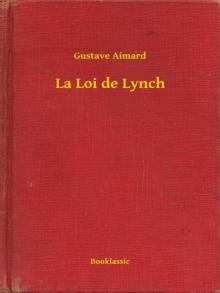 La loi de lynch. English
La loi de lynch. English The Guide of the Desert
The Guide of the Desert The Trail-Hunter: A Tale of the Far West
The Trail-Hunter: A Tale of the Far West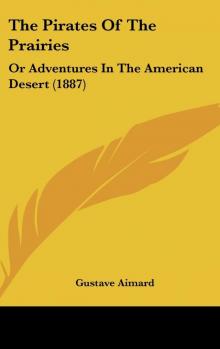 The Pirates of the Prairies: Adventures in the American Desert
The Pirates of the Prairies: Adventures in the American Desert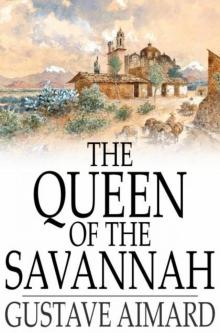 The Treasure of Pearls: A Romance of Adventures in California
The Treasure of Pearls: A Romance of Adventures in California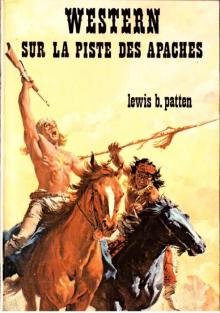 Les outlaws du Missouri. English
Les outlaws du Missouri. English Les trappeurs de l'Arkansas. English
Les trappeurs de l'Arkansas. English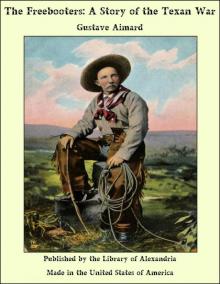 The Border Rifles: A Tale of the Texan War
The Border Rifles: A Tale of the Texan War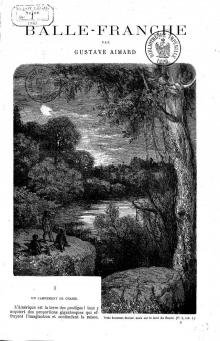 Balle-Franche. English
Balle-Franche. English The Queen of the Savannah: A Story of the Mexican War
The Queen of the Savannah: A Story of the Mexican War The Red Track: A Story of Social Life in Mexico
The Red Track: A Story of Social Life in Mexico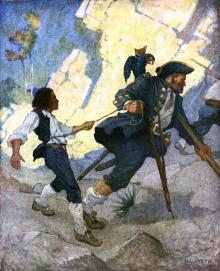 La fièvre d'or. English
La fièvre d'or. English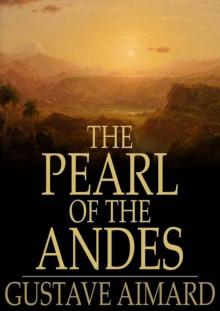 The Pearl of the Andes: A Tale of Love and Adventure
The Pearl of the Andes: A Tale of Love and Adventure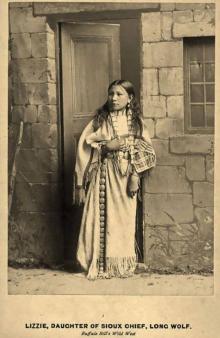 Les fils de la tortue. English
Les fils de la tortue. English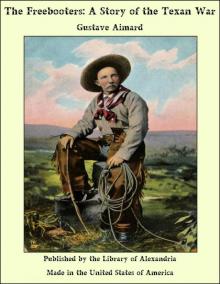 The Indian Chief: The Story of a Revolution
The Indian Chief: The Story of a Revolution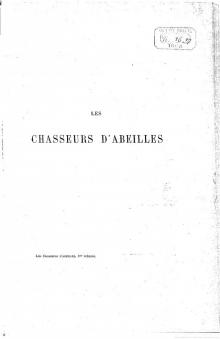 Les chasseurs d'abeilles. English
Les chasseurs d'abeilles. English The Adventurers
The Adventurers